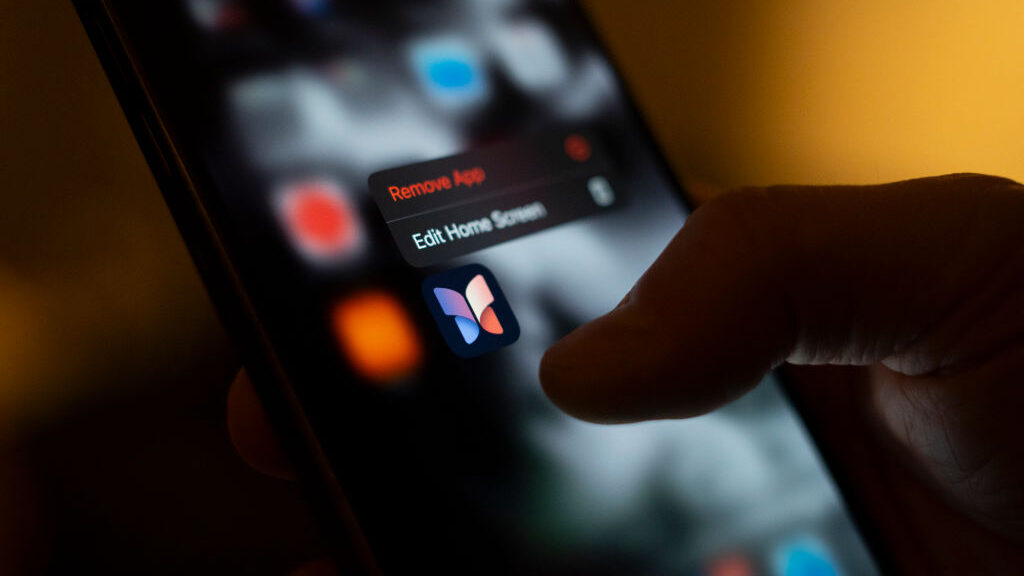Lock down your phone from snoops and hacks
Jul 4, 2021, 5:00 AM

(Pixabay Photo)
(Pixabay Photo)
Your phone is full of secrets, whether you think about it that way or not. Would you want just anyone to see your private conversations, swipe through your photos, or open up your emails? Of course not.
There are digital spies to worry about, too. Tap or click for a way to see which apps are accessing your camera or microphone.
In just a few minutes, you can set up your phone the secure way.
1. Do the two-step
If you don’t have two-factor authentication enabled yet, get on it.
This adds another layer of security to your logins by requiring more than just your password. These codes almost always come via text or email, though you can get 2FA codes through an app instead. Tap or click for steps to set up Google Authenticator.
Here’s how to enable this security must-have on your phone:
2FA for iPhone (Apple ID)
● Go to Settings > [your name] > Password & Security and tap Turn on Two-Factor Authentication.
● Tap Continue, then enter the phone number where you want to receive the verification codes.
● Tap Next and enter the code.
2FA for Android (Google)
● Open your Google Account and select Security.
● Select 2-Step Verification (under Signing in to Google) and then Get started.
● Now pick a method for verification: Google prompts, security keys, Google Authenticator or similar apps, or a verification code sent to your phone via text or call.
2. Verification is necessary but make it easier on yourself
Two-factor authentication is a good security measure, but some people don’t activate it because they don’t want to deal with the extra steps involved. Autofill options make it easier to use 2FA when logging into a new device or account.
When you log into a new app or site with your 2FA-enabled iPhone, you no longer have to open the Messages app to get the code. Instead, the code will appear on your keyboard and you can tap it to autofill the security field.
This feature is built into iOS 12 and later and there’s no need to enable it. Handy! Tap or click here for more iPhone security tips.
For Android, open Settings and search Autofill. Tap the service you want to enable it. Now open Settings again and go to Google > Verification Code Autofill and set the slider to On. When using an app that supports it, tap Autofill to populate the security field.
3. Get notified if hackers have your passwords
How do you know if a password is good or if it’s been compromised? If you’re relying on one you’ve used for years, there’s an excellent chance it’s floating around in a data dump. Tap or click here to do a quick check for your email and passwords in recent breaches.
Your phone has some built-in helpers, too.
On an iPhone, Safari stores your passwords in Keychain, accessible from your iOS device or iCloud. Your passwords are checked against a list of breached passwords, informing you if you have been compromised. Good news: This is turned on by default with iOS 14.
Go to Safari > Preferences > Passwords and look under Security Recommendations to see if any of your passwords were compromised. If so, you’ll get a prompt to update your password with a stronger one.
Chrome’s Password Checkup feature is built into the Password Manager. You may use this on your Android. To check for passwords that have been compromised or are weak, go to passwords.google.com. Select Password Checkup > Check Passwords.
4. Set up a stronger backup
Hopefully, you regularly back up your phone. Ideally, you’ll never need to use your backups, but it’s nice to know they are there if you lose your phone or it won’t turn on.
Encrypted iPhone backups contain information you won’t find in routine backups, including saved passwords, health data, Wi-Fi settings, call history, and website history.
● On Mac with macOS Catalina 10.15 or later, open Finder. Open iTunes if you’re using a Mac with macOS Mojave 10.14 or earlier or a PC.
● Connect your iPhone to the computer and locate it.
● Under the General or Summary tab, find Backups. Select Encrypt local backup.
● Create a strong password. Save this in a password manager if you use one.
● Confirm your password. This new backup will overwrite and encrypt your previous backups.
Good news, Android users. If you’re running Android 9 Pie or later, encryption is turned on by default. You can turn it off in settings, but there’s really no reason to do so.
5. Hide your risqué and sensitive photos
We all have photos we don’t want just anyone seeing. Yes, I know what comes to mind — but what about snaps that show financial information, your ID cards or sensitive business details? You can hide these from your main gallery.
Be aware that anyone with enough tech smarts will know to look for hidden folders. It will take them some time to get to your hidden photos, though.
On an iPhone:
● Open Photos and select the photo or video you want to hide.
● Tap the Share button then Hide to move them to the hidden folder. You can find the hidden folder under Utilities in the Photos app.
● Hide the Hidden folder by opening Settings > Photos. Scroll down and toggle off Hidden Album. Now it won’t show up under Utilities. Tap or click here for more hidden iPhone features.
On Android:
● Open Google Photos on your phone and tap to select the images you want to hide.
● Tap the three-dot menu in the upper-right corner, then tap Move to Archive. This moves your photos out of the main album.
● To access the archive, tap Library then Archive.
Android has a handy feature called Guest Mode, too, that you can use to limit access to your info. When it is enabled, your contacts, messages, photos and notifications are hidden from view. Tap or click here for directions on setting it up before you need it.
What digital lifestyle questions do you have? Call Kim’s national radio show and tap or click here to find it on your local radio station. You can listen to or watch The Kim Komando Show on your phone, tablet, television or computer. Or tap or click here for Kim’s free podcasts.









